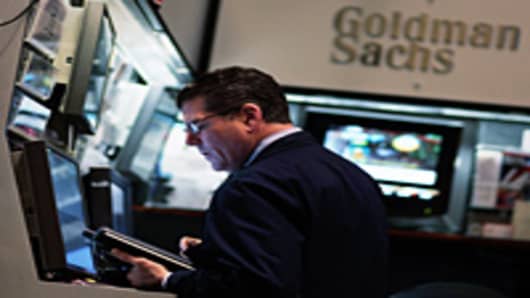"We verified that there was a preference of some customers at the expense of others," William Galvin, the state's chief financial regulator, said in an interview.
Gasp!
Has Galvin ever flown an airplane? Has he noticed that airlines reserve their best seats for certain customers? They even advertise this "preference for some customers at the expense of others" by calling the guys in the good seats "first class."
It’s totally reasonable for the Massachusetts pension funds to be envious of the access the hedge funds were given to smart Goldman research guys—in the same way its reasonable to envy the people in the front of the plane who are sipping champagne before you are even let on board.
But the truth is that both kinds of preferred customers are preferred for exactly the same reason—they pay for it. The hedge funds were in the inner circle because they traded so much—and paid Goldman tons of fees to execute those trades.
Were the pension funds hurt by the lack of access? Undoubtedly, it helps to have smart Goldman guys telling you their best trading ideas.
But if it was the lack of access that was the problem—then the settlement only makes things worse. Goldman has agreed to end the trading huddles altogether. So the pension funds still don’t get access to the secrets of Goldman.
The real complaint seems to be that the pension funds and other lower-tiered clients were somehow disadvantaged by other clients getting exclusive access. This is an absurdity, of course.
If the huddles were bringing more information into the market because traders were using that information to trade, then the excluded clients were actually benefitting from having prices of financial assets better reflect all available information.
The case against the huddles superficially resembles the case against insider trading—but without the theft of confidential information by anyone.
Goldman paid a $10 million fine to Massachusetts regulators for giving good information to its best clients. Now it's agreed to stop holding those huddles. I hope that's boosting someone's confidence in the markets. It's not boosting mine.
______________________________________________
Questions? Comments? Email us atNetNet@cnbc.com
Follow John on Twitter @ twitter.com/Carney
Follow NetNet on Twitter @ twitter.com/CNBCnetnet
Facebook us @ www.facebook.com/NetNetCNBC



